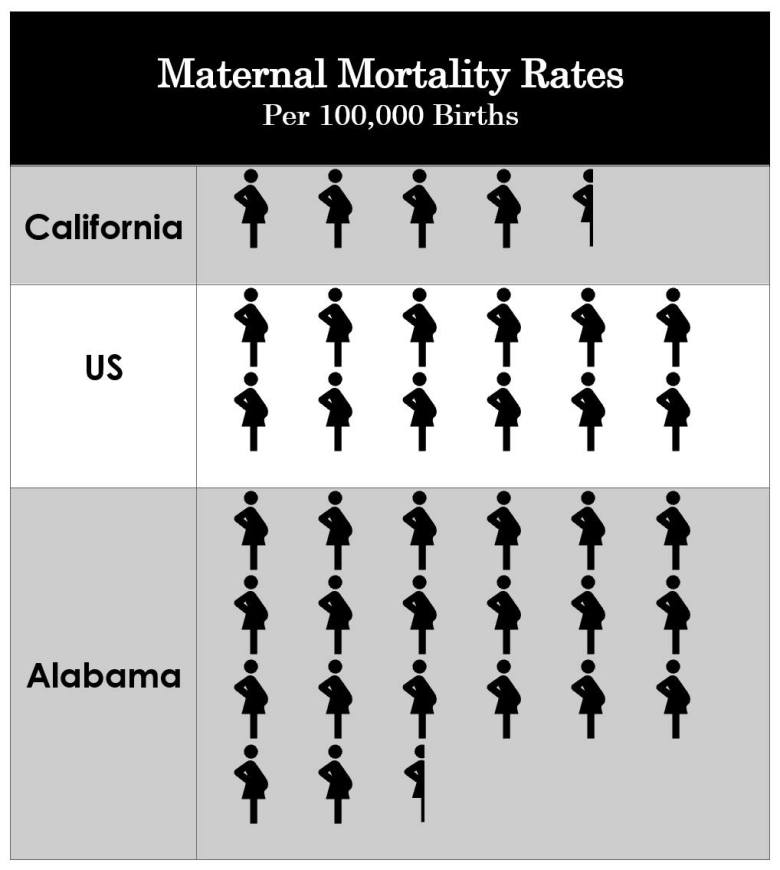On mothers day, I finished a detailed analysis of reproductive rights in the U.S. for my Berkeley Capstone. I reviewed the political and historical context, compared policy and outcomes of California and Alabama, and offered some solutions. I was utterly unprepared for my findings, and how little we know about where we are, how we got here, how truly terrifying ‘here’ is, and how we can get out. Here are a few of the take aways that stood out to me. Knowledge is power, and we have a fight on our hands.
It is not possible to hold fetal rights and a pregnant person’s rights as equal; a prioritization is unavoidable. Never in the history of our country have we put early stage fetal development above a pregnant person’s rights. What we are seeing is throwing out hundreds of years of practice and 500 years of legal precedent. Early English law establishing personhood at birth, not before, came to the US with the Puritans.

The anti-choice movement puts ALL pregnant people at elevated legal and health risk, no matter their intended pregnancy outcomes. It’s impossible to determine causation of pregnancy loss in most circumstances, and for laws to be enforceable, we will have to interrogate all those experiencing a loss (cruel and traumatic). In countries with total abortion bans, 15% of pregnancies are criminally investigated. Legal risk drives people away from medical care. An awful Catch-22.
We have seen a rapid increase in people experiencing government intervention in their pregnancies, from incarceration to forced surgeries. Between Roe and 2006, more than 400 people have experienced interventions for ‘crimes against their pregnancy’. Since then, this rate has doubled to more than 800, in less than half the time. These are low estimates, and growing each year.

States that prioritize reproductive rights have high pregnancy rates, and positive health outcomes for parents and children. States that prioritize ‘potential life protections’ have low known pregnancy rates (likely people keeping pregnancy secret), high infant and maternal mortality rates, high incarceration rates, and poor long term health outcomes.


Source
Reproductive health freedoms have only been won by large public movements. This battle is hard because the framing has been so successful by anti-choice folks. They are ‘heros’ and ‘saviors of the unborn’, somehow against those who become pregnant. It’s become a core identity issue in a way it is not for health advocates.
Reproductive advocates have embraced the whole spectrum of choice, and are there fighting for maternity leave, against pregnancy discrimination, and for positive health outcomes for families. ALL choices are supported. Reproductive rights can’t be a negotiable part of the progressive movement the way it has been to date. This fight is sad and painful, and people want to look away, and we can’t afford to.
I can respect those who feel conflicted about abortion. I believe all of us are united in wanting strong, healthy families and a thriving next generation. I believe people who can become pregnant are in the very best position to create strong, healthy families and NOT the government. That’s what the research backs too. When people are centered in their own health decisions, communities grow strong. This is important for all families, and all children.
When abortion is outlawed, every pregnancy is a potential crime.
**

